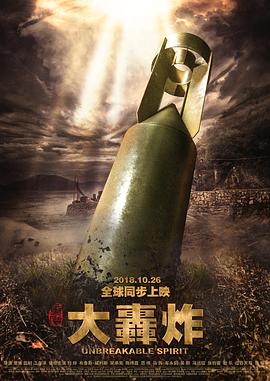第聂伯河防线
Igor Sigov / Xenia Knyazeva / Anatolij Kot / 安娜•戈尔什科娃

Spoilers alert! Being a movie set during the harrowing WWII period, Stanley Kramer’s serio-comic THE SECRET OF SANTA VITTORIA is remarkable for incurring zero casualty from stem to stern. Shot chiefly in location of Anticoli Corrado, standing in for the titular wine-making hill town, the film commences in the wake of Mussolini’s downfall in 1934, and under the leadership of the new mayor Italo Bombolini (Quinn), the townsfolk hides nearly 1 million bottles of wine from a German detachment, who tries to commandeer all their production.
The first half plays out as an unqualified comedy, Bombolini, an emasculated, henpecked, clownish drunkard, is patly vested in the mayorship by the outgoing Fascist government thanks to a hoopla, he has some personal crisis to overcome, and is mistakenly hailed by the people for his heroic exploits. Once taking up his official title, Bombolini has to reinvent himself and prove his worth to his people, not least to his long-suffered, irascible wife Rosa (Magnani), getting wind of the pending advent of German army, he and his aldermen devises a collective stunt by mustering all the town’s manpower, transferring almost 1 million bottles of wine to an ancient Roman cave mano a mano, then sealing them off in the tunnels, only leaving a tranche of them as a token number to appease the Germans. A massively deployed spectacle takes place in the wine-transferring process, everyone is motivated and no one is left behind, even the newly-widowed countess Catalina Malatasta (Lisi), a gung-ho celebration of the indefatigable spirit of the multitude is well achieved.
Lead by the commander Sepp von Prum (Krüger), the Germans finally arrive and henceforth, the movie’s jaunty atmosphere subsides and tension slowly builds up between the gamesmanship between Bombolini and von Prum, from forming a pacific, win-win coalition, haggling the actual numbers, to the breaking point when von Prum is informed with the real number of their production, and the resultant buttoned-up defiance (tactically sending some former Fascist members to take one for the team as a means of wiping the slate clean), both Quinn and Krüger comport themselves with distinction to reflect their respective Janus-faced flexibility in a battle of wits, although clearly there is only one winner, Krüger leaves out a palpable trace of humanity that often eludes the go-to portrayal of purely vile Nazi officers, whereas Quinn turns head in his brilliant switching between circumspect complaisance and unflinching faux-innocence, a polarized screen image of his Zamperò in Fellini’s LA STRADA (1954).
Strong female characters springing from the unrivaled Magnani, in one of her last roles, she magisterially condenses all her spitfire energy and lashes it on Quinn’s Bombolini with no holds barred (a bowl of spaghetti is nothing compared with her own kicking leg), only manages to squeeze a smile in the well-earned happy ending. Virna Lisi is given a more complicated role to interpret, her countess has to break both class and political barriers to fall in love with a Fascist deserter Tufa (tenor Sergio Franchi’s rare film sally), and she holds court wonderfully.
Although inevitably, based on Robert Crichton’s best-seller, Kramer’s TSOSV is a much Americanized commodity (both linguistically and tonally) and bears little influence of Italy cinema in its heyday albeit impressively marshaling an entire Italian village’s participation, opting for more widescreen inclusion than realism-infused immediacy, it is, nonetheless, a collective piece of work dazzles, amuses and entertains its viewers for its ultimate goodwill and finding optimism to countervail the unpleasantness of its time.
referential entries: Kramer’s JUDGEMENT AT NUREMBERG (1961, 8.1/10); Mihalis Kakogiannis’ ZORBA THE GREEK (1964, 6.2/10); Fellini’s LA STRADA (1954, 8.6/10).
收起 2008
2008HD中字版
本尼西奥·德尔·托罗 / 德米安·比齐尔 / 桑地亚哥·卡布瑞拉 / 维拉迪米尔·克鲁兹 / 朱莉娅·奥蒙德 / 埃尔薇拉·明戈斯 / 卡塔利娜·桑迪诺·莫雷诺 / 罗德里戈·桑托罗
 2016
2016HD
高天 / 李卓钊 / 燕歌
 2019
2019正片
Andrey,Mironov-Udalov,Maria,Melnikova,阿纳斯塔西娅·梅利尼科娃,Gela,Meskhi
 2018
2018HD国语
刘烨,布鲁斯·威利斯,宋承宪,陈伟霆,范伟,马苏,车永莉,吴刚,冯远征,张钧甯,耿乐,谢霆锋,范冰冰,陈道明,艾德里安·布洛迪,雷佳,涩谷天马,张帆,任达华,吕良伟,胡兵,黄海冰,拉莫·威利斯,刘晓庆,曹可凡,黄圣依,钟镇涛,爱新觉罗·启星,汪东城
 2009
2009正片
OndrejVetchy,InaMarojevic,VladoCerny,维卡·克里克斯
 2014
2014HD
周征波 / 王柠 / 孙渤洋